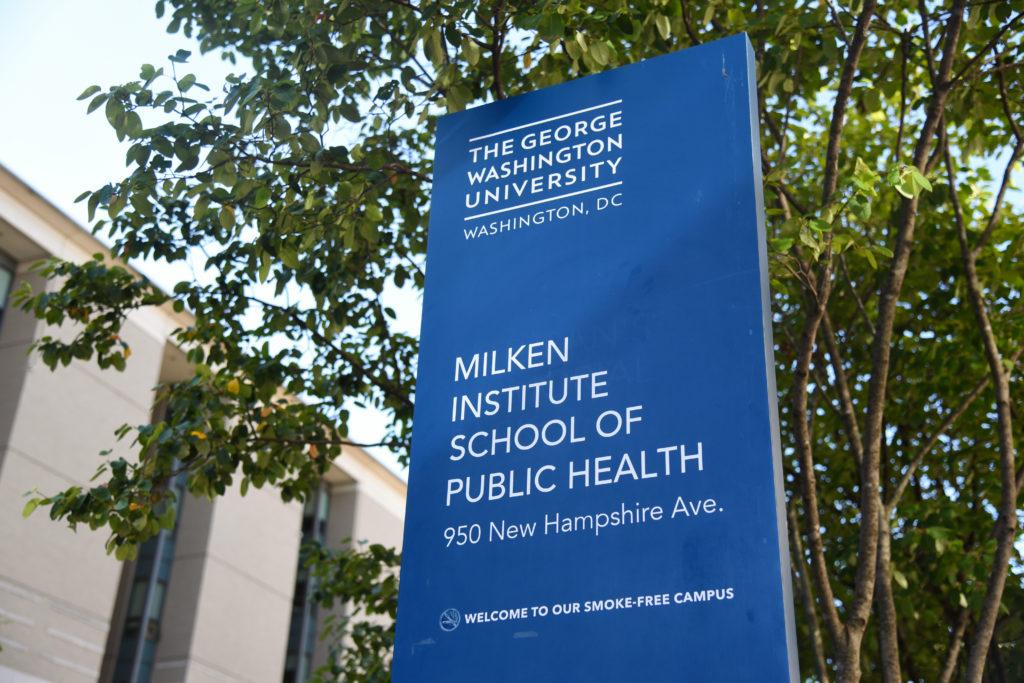Updated: Sept. 14, 2020 at 10:32 a.m.
Researchers from the Milken Institute School of Public Health received a nearly $2 million grant earlier this month to investigate ways to decrease malnutrition in pregnant women.
The research, funded by a grant from the Bill & Melinda Gates Foundation, will use an adaptive trial design, which sets a certain amount of nutrients to test and analyze whether a dose was effective, to develop data to support the health of pregnant women and their children. Maternal nutrition experts said research in the area has long been under-researched, adding that the project could potentially change the World Health Organization’s maternal nutrition guidelines.
Emily Smith, an assistant professor of global health and exercise and nutrition sciences and the lead researcher for the study, said maternal nutrition research lacks modern methods to study the role of micronutrients in pregnant women.
She said 75 to 80 percent of women take prenatal vitamins during pregnancy, a recommendation from the U.S. Department of Agriculture, but she said USDA’s guidelines are based on minimal and dated research on pregnant women.
“They do that because as we understand from the USDA dietary reference intake guidelines, they say that pregnant women should have more micronutrients – that’s why you take a prenatal vitamin,” Smith said. “But those numbers about why you should take that much iron, that much folic acid, that much calcium, those numbers actually are not based in very much research of pregnant women.”
Smith said her team, which will collaborate with researchers from Tanzania and India, chose an adaptive trial design to conduct their research because it will allow them to revisit micronutrient doses given to test subjects to determine what is most effective for pregnant women. She said she’ll determine a dose of nutrients to start testing based on research and will then adapt the dose depending on whether it was effective.
Smith said she’s looking forward to working with her team of researchers, who she said have a diverse range of skill sets and interests and some of whom have never worked on maternal health before.
“Everyone says they want to do interdisciplinary research, but I’m excited that we actually have the chance to actually do it,” she said.
Maternal malnutrition experts said this area of research has typically focused on child nutrition after the baby is born, and more research needs to be done on the nutrients the mother needs during pregnancy.
Rafael Perez-Escamilla, a professor of public health at the Yale School of Public Health, said maternal malnutrition starts with the mother not receiving proper micronutrients in her diet, even before she becomes pregnant. He said academics should research food inequities in poor areas both in the United States and around the world and find which micronutrients can aid women in pregnancy.
“We know deficiencies of vitamins and some minerals after birth can lead to producing human milk or breast milk that has a lower supply of those vitamins and minerals for the babies,” Perez-Escamilla said. “The point I’m trying to make is that we really need to think of maternal nutrition as a life-course issue that needs to be properly addressed at preconception, during pregnancy and during the first years of life.”
Perez-Escamilla said the issue of maternal malnutrition has been under-researched because society hasn’t traditionally valued the health of women and children. He said philanthropic organizations like the Bill & Melinda Gates Foundation have typically focused on finding “magic bullet” solutions to maternal nutrition, but the issue requires a more in-depth approach.
“Saying we feel it is very important to address Alzheimer’s or we think it’s very important to address colon cancer, those are perceived to have more importance, but at the end of the day, the foundation of life is established in many ways through the quality of the diet and nutrition during preconception, gestation and early childhood,” Perez-Escamilla said.
Lindsey Locks, an assistant professor of global health at the Boston University School of Public Health, said understanding micronutrients and how they affect women’s health in pregnancy is critical for the health of both the mother and the baby.
“I think there’s been a lot more attention in recent years to the fact that the mother is also a woman and not just a vehicle for a baby,” Locks said.
Locks said Smith’s research is essential because it has the potential to “ultimately change” the World Health Organization’s global guidelines on maternal nutrition. She said maternal nutrition research has typically focused on child nutrition without a heavy focus on the mother’s nutritional intake.
“I think that this research really has the potential to be high impact in terms that it will ultimately affect antenatal care and our approach to malnutrition women throughout pregnancy globally,” Locks said.
This post has been updated to correct the following:
The Hatchet incorrectly reported that Perez-Escamilla is a member of the Yale School of Medicine. He is a member of the Yale School of Public Health. We regret this error.








